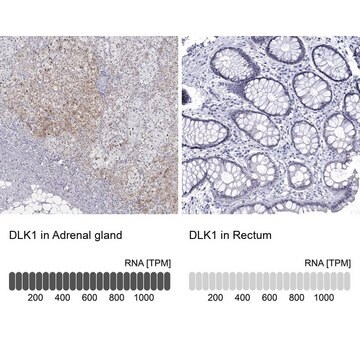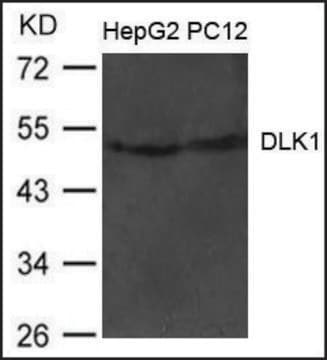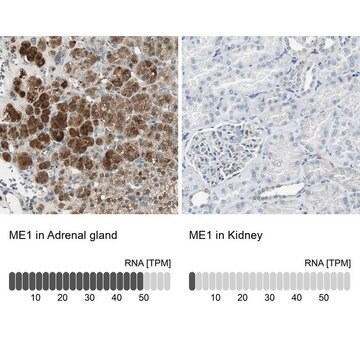MABN671
Anti-DLK1 Antibody, clone 3A10
ascites fluid, clone 3A10, from mouse
Sinónimos:
Protein delta homolog 1, DLK-1, FA1, ZOG, pG2, PREF1, Pref-1
About This Item
Productos recomendados
biological source
mouse
Quality Level
antibody form
ascites fluid
antibody product type
primary antibodies
clone
3A10, monoclonal
species reactivity
mouse, human
technique(s)
immunofluorescence: suitable
immunohistochemistry: suitable
isotype
IgG1
UniProt accession no.
shipped in
wet ice
target post-translational modification
unmodified
Gene Information
human ... DLK1(8788)
General description
Immunogen
Application
Optimal working dilutions must be determined by end user.
Quality
Immunohistochemistry Analysis: A 1:100 dilution of this antibody detected DLK1 in human pancreas tissue.
Target description
Analysis Note
Human pancreas tissue
Not finding the right product?
Try our Herramienta de selección de productos.
Storage Class
10 - Combustible liquids
wgk_germany
WGK 1
Certificados de análisis (COA)
Busque Certificados de análisis (COA) introduciendo el número de lote del producto. Los números de lote se encuentran en la etiqueta del producto después de las palabras «Lot» o «Batch»
¿Ya tiene este producto?
Encuentre la documentación para los productos que ha comprado recientemente en la Biblioteca de documentos.
Nuestro equipo de científicos tiene experiencia en todas las áreas de investigación: Ciencias de la vida, Ciencia de los materiales, Síntesis química, Cromatografía, Analítica y muchas otras.
Póngase en contacto con el Servicio técnico








